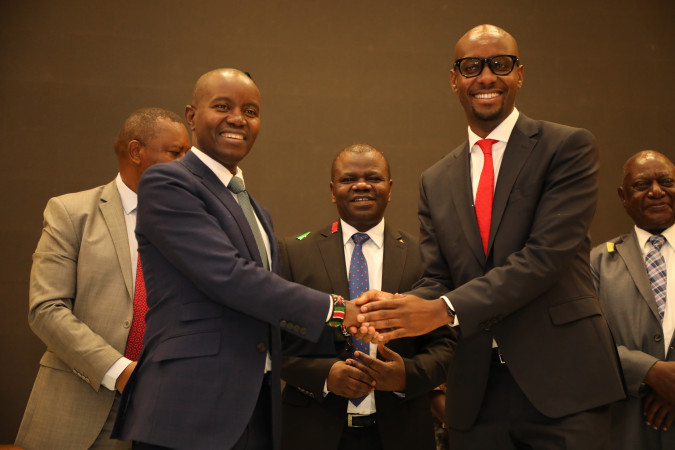New coding lessons for digital students
By Irene.Githinji, June 9, 2022ICT Cabinet Secretary Joe Mucheru (above) has welcomed a move to integrate coding into the education curriculum, saying it will boost digital literacy from an early age.
Mucheru spoke yesterday when he officially launched the first coding syllabus to be offered by Kodris Africa, an online platform with the aim of teaching children of 7-to-16 years how to code.
He said the Government will continue to implement the digital programme in public and private schools.
“Digital literacy is critical for all Kenyans and we are proud to say that Kodris Africa will complement the Government’s Digital Literacy Programme,” said Mucheru when he launched the programme yesterday.
Kodris Africa aims at equipping students with productivity, analytical thinking, problem-solving skills, design thinking skills and algorithmic thinking skills. The Government will soon launch the pilot of the coding content to 150 public schools, out of which 100 are primary while 50 are secondary schools.
Mucheru said the ICT Authority has equipped over 22,000 public schools with laptops and tablets that are connected to the internet, making learning easier for them.
“Adding coding to the school curriculum will enhance students’ technological skills,” said the CS.
Kodris Chairman, Mwaniki Munuhe said that Africa has a rich history of technology and the platform seeks to prepare young learners to become architects of the digital age and producers, and not just consumers.
The platform seeks to train at least 20 million Kenyans within 10 years to help them acquire ICT skills beyond just being able to send short messages and using social media.
– Irene Githinji
“We would want these devices to reach every child but with the outbreak of Covid-19, we were no able to get the budget needed but this has called for the need of partnerships to boost the programme,” he added.
At the same time, the CS urged ICT Authority to consider a proposal whereby the gadgets can be leased to ease the cost of procurement every three years and ensure that all children have access to devices and technology.
“The challenge of devices is that every three years there is a new procurement process, the old ones life ends coupled with new technologies yet we want to make sure we provide these services to schools to acquire the latest skills,” explained the CS.
He made proposals to have digital devices for schools leased out, likening it to the model adopted at the Ministry of Interior, where vehicles are leased instead of putting all the money to acquire them often.
“In Interior service we are leasing cars instead of the Government putting all the money there and I believe that is the same model we should put here through the leadership of financial institutions,” explained the CS.
“It would be welcome if the Government can be able to afford to pay on an annual basis for leasing devices available to all schools as opposed to buying them and then after three years another process of upgrading them and procurement. If they are leased, they become an expenditure every year and the money budgeted,” proposed the CS.
Kodris Chairman, Mwaniki Munuhe said that Africa has a rich history of technology and the platform seeks to prepare young learners to become architects of the digital age and subsequently become producers and not just consumers.
“Technology is the future. Any child who is not grounded on technology will suffer in the future. Technology is the currency of the future,” said Munuhe.
The CS also launched a digital training programme, citizentraining.icta.go.ke which will be implemented by ICT Authority.
The platform seeks to train at least 20 million Kenyans within a period of 10 years to help them acquire ICT skills beyond just being able to send short messages and using social media.
